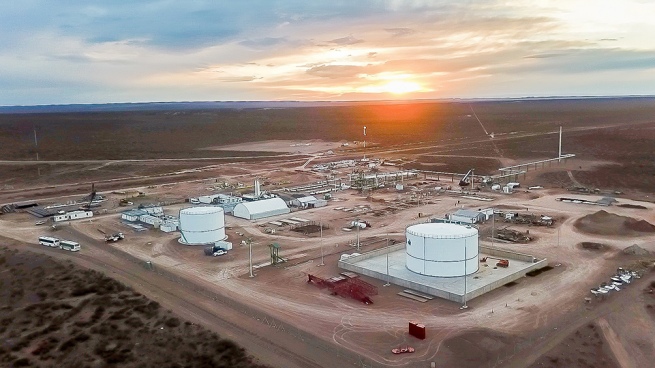The president of Energía Argentina (Enarsa), Agustín Gerez, assured this Friday that the Néstor Kirchner gas pipeline “will be ready to function on June 20, 2023” and estimated that, with its start-up, there will be savings in imports of “between US$1.3 billion and US$1.5 billiondepending on next year’s liquefied natural gas (LNG) values.”
In an interview given to the newspaper La Nación, the official explained that by mid-August the contract for the construction of the gas pipeline should be awarded, in accordance with the schedule for the delivery of pipes.
Once the pipeline is operational, Argentina will save, according to Gerez’s estimates, between “US$1.3 billion and US$1.5 billion.
Regarding the necessary financing to build the pipeline, he indicated: “All the money is already there. We have $140,000 million. Part of the funds come from 25% of what is collected by the Solidarity Contributionand the rest are budget items from the Ministry of Energy, which were directed or passed on to Enarsa”.
In this sense, Gerez affirmed that “although there were some delays, which are minor, the schedule is still valid and imports should be replaced as of June 20, 2023. By that date, it would already be in technical and operational condition to transport gas.”
The construction of the Néstor Kirchner gas pipeline – which will increase gas transportation capacity from the Vaca Muerta formation to different locations in the center of the country – was announced at the end of April by President Alberto Fernández.
The work will allow in its first stage increase transportation capacity by 24 million cubic meters (m3) of gas per day to replace the importation of fuels and strengthen the supply of users and power generation plants that supply the Buenos Aires Metropolitan Area.
Once the gas pipeline comes into operation, Argentina will save, according to Gerez’s estimates, between “US$1.3 billion and US$1.5 billion, depending on next year’s liquefied natural gas (LNG) values” on fuel imports .
In another section of the interview, the head of Enarsa revealed that the company has already contracted 41 LNG ships this year, divided between 27 to Escobar, which has a greater regasification capacity, and 14 to Bahía Blanca, with a total cost of US $2,925 million.
“The first tenders were closed with prices of US$42 per million BTU (English measure used in the sector) and in the last one we obtained an average of US$24. The total cost so far is US$2,925 million,” he stated. Gerez.









